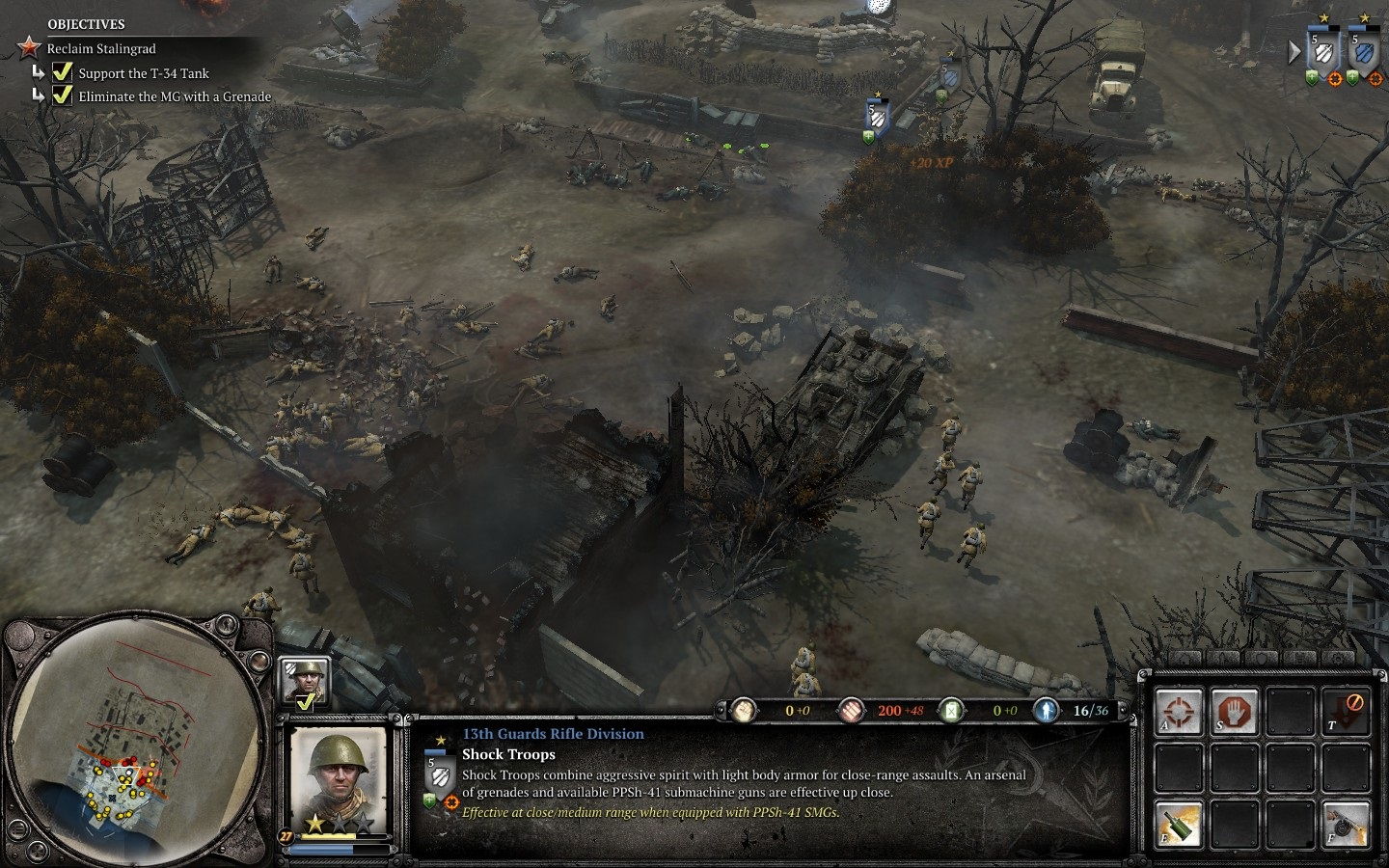

Italy just happens to be a fairly narrow peninsula, and the ultimate objective of breaking through to Rome is always the same. But it's also tighter in scope and more directly narrative-driven than my previous impressions would have suggested. You can still move companies around wherever you like, call in air support, and leverage your navy for strategic and tactical advantages. And overall, I think that's for the better. While I've compared it to Total War in the past, what has emerged from the crucible of iteration and player feedback is something that feels more focused and perhaps a bit more guided. The dynamic Italian campaign has also seen significant tweaks, even since I last got to play it a couple months ago. No matter who wins here, civilians will still lose their homes and their loved ones. It really hammers home how there are (ironically, given the franchise's name) no true heroes in war.

The narrator points out how British bombing raids against German positions near her village were far from the herald of their liberation – they simply represented further destruction. It doesn't boil the conflict down to black-and-white, either. I can't show any of the cutscenes that set this up since they were still being worked on, but I was impressed with the level of nuance and spotlighting of an aspect of World War 2 most games like this would gloss over. The linear North African campaign seems to really be leaning into the idea of presenting the war in terms of the impact it had on the local noncombatants, which is probably about as responsible a retelling as you could hope for in a real-time strategy game with playable Axis forces.


 0 kommentar(er)
0 kommentar(er)
